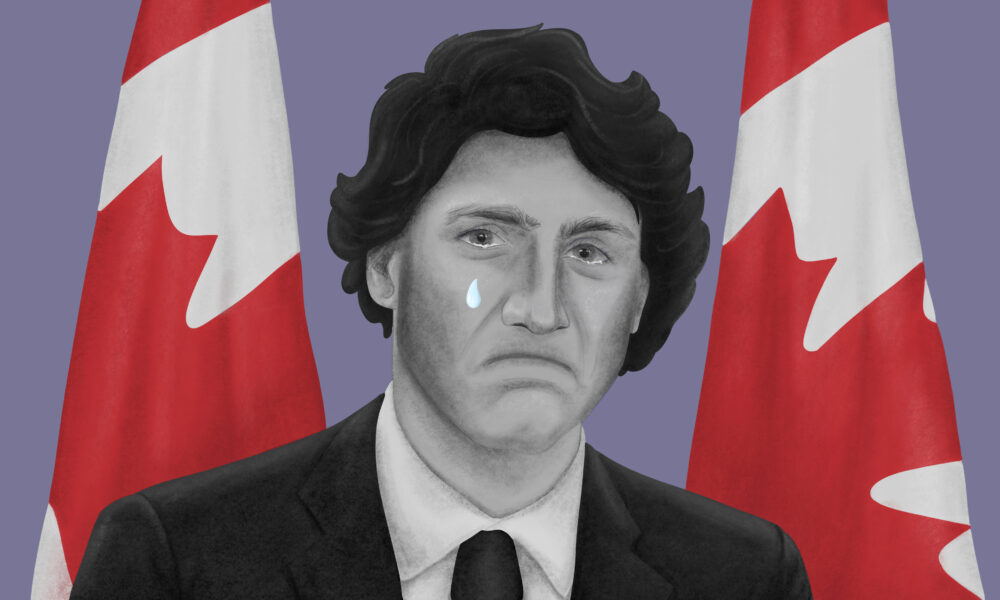A widely unpopular progressive party leader, having unsuccessfully attempted to fend off a populist conservative challenger, is forced to step down for the sake of his party’s re-election prospects. Wait, who are we talking about?
Canadian Prime Minister Justin Trudeau’s resignation on Jan. 6, 2025 shares eerie resemblance with former U.S. President Joe Biden’s choice to step down this past July. Both represent an attempt to distance the two parties from the poor image voters have of their soon-to-be-former leaders. Americans now know that Biden’s decision to step down from the position of Democratic Party nominee was neither sufficiently impactful nor well-timed enough to win former Vice President Kamala Harris the 2024 U.S. Presidential Election. To ensure that Trudeau’s resignation will not result in a similar failure, the Canadian Liberal Party must seize the lifeline Trudeau has thrown to them.
Looking back, perhaps the largest obstacle that stood between Harris and the U.S. presidency was her association with the Biden administration, as many Americans doubted that she would go beyond echoing Biden’s policies. A similar concern exists now among Canadian Liberals; almost all the potential replacements for Trudeau have either worked or are still working in his cabinet. If Liberals wish to compete with Conservative Party Leader Pierre Poilievre in the upcoming election, they must clearly differentiate themselves from the Trudeau period and demonstrate their capacity to move forward.
However, the Liberals do have a crucial factor on their side: Time. Harris had come into the presidential race without the execution of an open Democratic primary, limiting the American public’s faith in her, and leaving a mere three months to mount a campaign from scratch. Trudeau’s resignation differs, as there is ample time to identify an inspiring replacement through a traditional leadership race. Trudeau’s proroguing of Parliament until Mar. 24, 2025 ensures that the Liberals will have several months to choose a party leader who could reasonably win the election before a motion of confidence is called.
In addition to their differences in electoral timeline, two additional factors exist that could win the Liberals favour: The prospect of a U.S. tariff on Canadian goods and Trump’s remarks on making Canada the ‘51st state.’ Such an international threat could generate a rally-around-the-flag effect, as Canadians, regardless of their party affiliation, would be united in their fear of threats to Canadian sovereignty by U.S. economic force. The Trump problem could thus be, if weaponized efficiently by Trudeau and his successor, a tool to attract voters to the Liberal party with effective solutions to tariff threats.
Finally, and perhaps most significantly, it is necessary to recognize that Canadian politics are not nearly as polarized as U.S. politics. The election of President Donald Trump represents an undeniable threat to American democratic processes, both due to his identity as a convicted felon and perpetrator of sexual assault and rape and because of his political agenda. Trump’s Agenda47 is centred on the deportation of immigrants—who Trump refers to as ‘illegals,’ censorship of ‘radical’ educational topics, aggressive attacks on TSLGBTQIA+ rights, reversal of climate change policies, and still more. Severe ideological divides followed in the wake of these extremist proposals, meaning that bipartisan collaboration in favour of the people was almost inconceivable. By contrast, Canada has witnessed numerous instances of cross-party cooperation, such as in the Russian invasion of Ukraine, worker striking laws, trade relations with the U.S. and Mexico, and the rights of Indigenous peoples. The Liberal Party therefore must be cautious over these next few months so as not to introduce a level of polarization that makes democratic collaboration impossible.
As shapers of public discourse, McGill students must commit to collaborative dialogue over partisan divides. Through forums for cross-partisan student discussion, the McGill student body can fight the drift towards polarization, shaping a better political future for generations to come. Regardless of whether history repeats itself in Canada this election cycle, the disturbingly polarized nature of U.S. politics should serve as a cautionary tale. Members of the Canadian political landscape must take deliberate steps to avoid entering a state of deep division that has already paralyzed governance and fractured communities in the United States.







